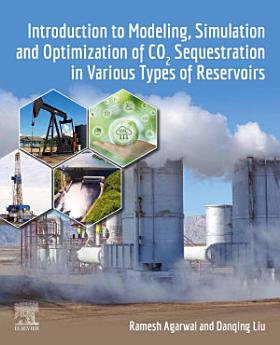Introduction to Modeling, Simulation and Optimization of CO2 Sequestration in Various Types of Reservoirs
Nov 2024 · Elsevier
Ebook
400
Pages
family_home
Eligible
info
reportRatings and reviews aren’t verified Learn More
About this ebook
Carbon capture and sequestration has become an essential technology for addressing the mitigation of global warming and adverse climate change due to increasing CO2 emissions from fossil fuel combustion worldwide. However, the scientific/engineering community still lacks thorough and practical knowledge about various types of reservoirs capable of effective long-term CO2 sequestration. Introduction to Modeling, Simulation, and Optimization of CO2 Sequestration in Various Types of Reservoirs pulls together the relevant basic scientific knowledge and applications to help reservoir engineering practitioners learn and utilize the potential of CO2 sequestration in saline, oil, gas, shale, basalt, and geothermal reservoirs. After presenting the fundamental properties of various reservoirs, the authors describe each type of reservoir and explain basic parameters, benchmark cases, experimental data, optimization strategies for CO2 sequestration, prospects, and outlook. Rounding out the text with a glossary and consideration of future developments, this book delivers the necessary tools for engineers to better understand carbon sequestration and advance the energy transition. - Introduces the physical characteristics of saline, oil, gas, shale, basalt, and geothermal reservoirs - Describes the physics and chemistry of CO2 sequestration in different types of reservoirs and their modeling - Applies numerical simulation and optimization methodology to various reservoirs with real-world examples - Reviews machine learning applications to carbon capture and sequestration
About the author
Ramesh Agarwal is currently the William Palm Professor Chair at Washington University in St. Louis. Previously, he was the Sam Bloomfield Distinguished Professor and Executive Director of the National Institute for Aviation Research at Wichita State University, Kansas and the Program Director and McDonnell Douglas Fellow at McDonnell Douglas Research Laboratories in St. Louis. Dr. Agarwal received his PhD from Stanford University, M.S. from the University of Minnesota and B.S. in Mechanical Engineering from the Indian Institute of Technology, Kharagpur, India. He is the author and coauthor of over 600 publications. He has given many plenary, keynote and invited lectures in over sixty countries. He is a Fellow of 24 professional societies American Society of Mechanical Engineers (ASME), Institute of Electrical and Electronics Engineers (IEEE), Society of Automotive Engineers (SAE). He has received many prestigious national/international awards including the SAE Medal of Honor, ASME Honorary Fellowship and Honorary Fellowship from Royal Aeronautical Society.Dr. Danqing Liu is currently an Assistant Professor in the School of Environmental Sciences in China University of Geosciences in Wuhan, China. She received her PhD from China University of Geosciences. She is the author and co-author of nearly 50 papers in many prestigious journals in the area of CCS in saline aquifers, shale, basalt and other reservoirs.
Rate this ebook
Tell us what you think.
Reading information
Smartphones and tablets
Install the Google Play Books app for Android and iPad/iPhone. It syncs automatically with your account and allows you to read online or offline wherever you are.
Laptops and computers
You can listen to audiobooks purchased on Google Play using your computer's web browser.
eReaders and other devices
To read on e-ink devices like Kobo eReaders, you'll need to download a file and transfer it to your device. Follow the detailed Help Center instructions to transfer the files to supported eReaders.





